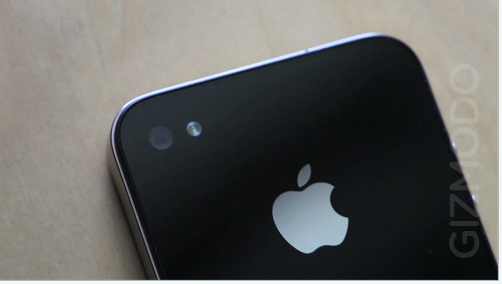
As an update to my last Spinning Gears Column, Lessons from the Lost iPhone Saga, Simon Owens, the man behind Bloggasm wrote me to let me know he had had the opportunity to exchange messages with Nick Denton, the man who founded and is still behind Gawker Media – the company that owns Gizmodo, as well as other blogs like Lifehacker, io9, and more.
Quite simply, and I was skeptical when I read his first message, he pointed out that Nick says that Gawker and Gizmodo have made no direct revenue from the now-famous “This is Apple’s Next iPhone” post that made Gizmodo one of the most popular sites on the internet for a while, and is probably still raking in the page views. In my column, I made a point to note that Gawker paid their source, the person who found or otherwise obtained the iPhone prototype $5000 for the device – something that’s brought up a number of questions around journalistic ethics that I’m not going to try and dissect here – I think other voices have done it better than I have, and I made my thoughts known in the last column.
But I assumed that Gawker would get the $5k back easily in terms of ad revenue and such from the post that went up (and no I’m not including any bandwidth charges Gawker would have had to absorb in order for their servers to support the traffic) and according to Owens’ email and his post at Bloggasm, Nick says that’s just not true. I thought it would have something to do with a fancy definition of “direct” versus “indirect” revenue, but it’s nothing so complicated – it’s just that ads are sold in advance:
Given that Gawker Media charges about $10 CPM, then one would think the media company raked in somewhere in the neighborhood of $100,000 in advertising, making the $5,000 Gawker-owner Nick Denton reportedly paid to get his hands on the found (stolen?) iPhone well worth it.
But at a recent Paid Content event, Denton said that the scoop brought “â€no immediate revenue benefits whatsoever,†and that instead it garnered “hundreds of thousands of dollars worth of publicity for the site.â€
After reading this I emailed Denton asking him to confirm the no-direct-revenue claim and explain why the high page views didn’t result in more advertising dough.
“Internet advertising is sold a few weeks ahead of time,†he wrote back. “So you might guarantee 2m impressions at $10 per thousand, for instance. If you get 4m impressions, you can’t go back to the advertiser and renegotiate. It’s either a bonus to the advertiser or wastage.â€
Yowch. Now granted, Gawker is likely doing much better for itself in terms of advertising now than it used to, but that doesn’t capitalize on the massive spike that came with the publication and breaking of the iPhone prototype story, and maybe some of those increases will be considered “indirect” revenue, but that’s pretty perception shattering on its own, and I’m grateful to Owens for bringing it to my attention.
It’s pretty remarkable though that even the massive Gawker, which is larger than a number of newspapers and publishing companies with a massive blogging empire that spans multiple topics and sites, still has to deal with marketing and advertising the old fashioned way, and while advertisers may be seeing the benefits of all of those pageviews, Gawker gets to absorb the costs, hoping to capitalize on them later.
Here’s hoping they can – regardless of what you think of their journalism, Gawker is a leading company in this new media space, and a pioneering organization that’s paving the way forward when it comes to journalism on the Web.
[ Bloggasm :: Gawker’s Nick Denton Says Gizmodo Made No Direct Revenue from Leaked iPhone Post ]

Pingback: Gears and Widgets :: A Heaping Helping of Tech » How Does Gawker Decide Whether It Will Pay For a Scoop?